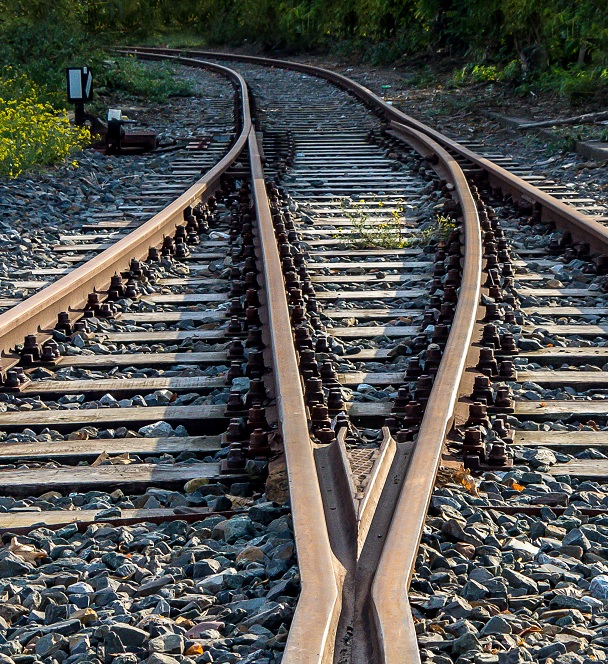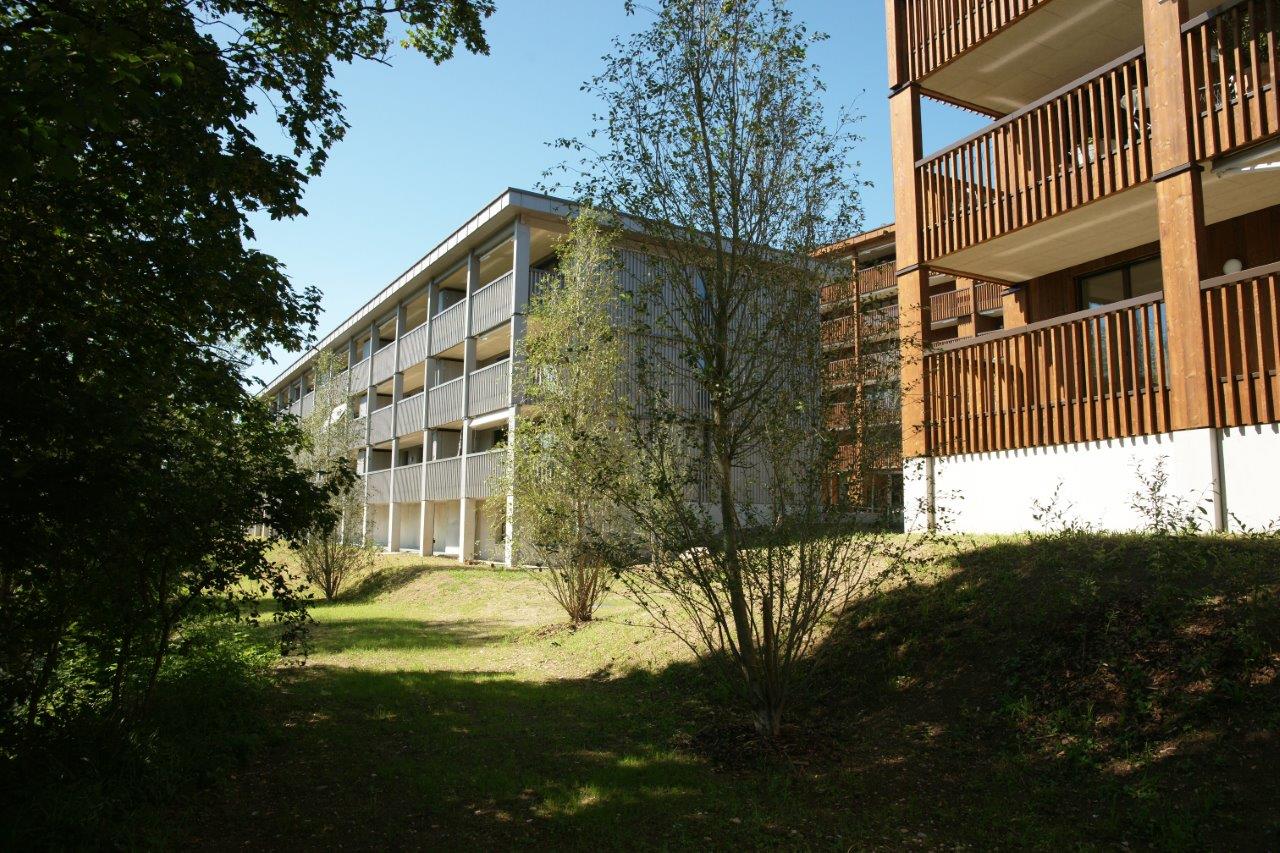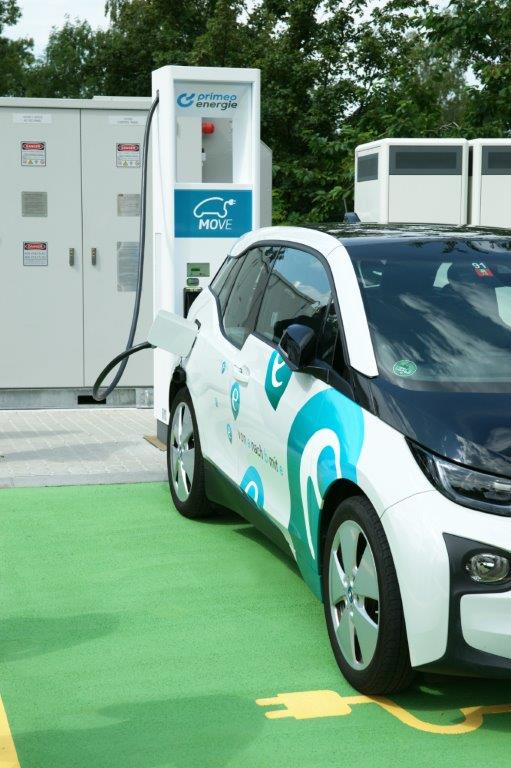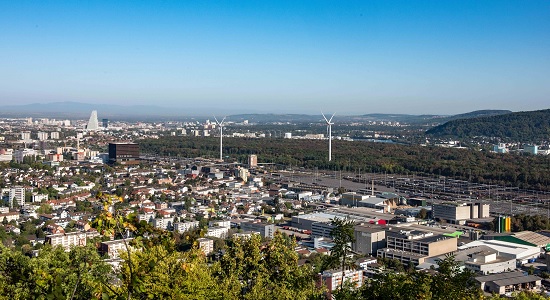Energy Globe
Incentive taxes aim to save the climate
In October 2017, Switzerland ratified the Paris Agreement and thus took a stand in favour of limiting global warming. In its dispatch of 1 December 2017 on the full revision of the CO2 Act, the Federal Council defined ways of acting on this commitment nationally. The law aims to contribute to limiting the rise in temperature to 1.5 degrees.
"After intensive discussions during the autumn session, the Federal Assembly concluded its deliberations on the total revision of the CO2 Act."
By continuing to selectively and rigorously apply the instruments to the transport, buildings and industry sectors, we should be able to reduce greenhouse gas emissions in Switzerland by at least 50% by 2030 compared to 1990 and balance our carbon footprint by 2050.


Advancing climate protection
At the autumn session, the Federal Assembly concluded its deliberations on the matter. The result was an Act that promotes the implementation of climate protection in all areas and is socially and economically compatible at the same time. For example, Switzerland has now set itself a target to offset at least 75% of its greenhouse emissions with measures taken internally. This involves a costly plan.
The transport sector, which had been spared previously, will be subject to an initial surcharge on petrol and diesel of 10 centimes and later up to 12 centimes per litre. A CO2 threshold will apply to old buildings from 2023 if the heating has to be replaced. Homeowners will be able to install a new oil-fired heating system only if the house is well insulated.
However, these incentive taxes are returned to the population per capita and for a specific purpose. The levy on airline tickets is also an incentive tax, which means the originator must bear the external cost, half of which is then returned to the public and the economy. A tax of between CHF 30 and 120 is to be applied.
Nevertheless, voters will have the final say, as the referendum against the Act has already been announced.
Olivier Schneider, Researcher, Primeo Energie
EKZ and Primeo Energie are setting the course for the future

EKZ and Primeo Energie are pooling their expertise in energy trading and thus creating Switzerland's leading energy trading company.
Electricity supply companies and business customers across Switzerland reaped the benefits from a dynamic electricity market with strong competition and low margins. With this in mind, EKZ and Primeo Energie joined forces. The company, which started operations on 1 January 2021 under the name Primeo Energie AG, invested in digitising its customer platforms and developing impressive products and services for its customers.
Digital business processes in the trading and supply of gas and electricity were intended to position Primeo Energie AG as one of the most modern energy providers in Switzerland. In addition to trading gas, electricity and electricity certificates, energy-related services such as energy portfolio management, private consumption communities, multi-energy billing, system services and direct marketing, all with a strong customer orientation, will be offered from a single source.
Shaping the future of energy
EKZ and Primeo Energie justify the move to a joint energy distribution company as they enjoy a shared vision and complement each other perfectly in the energy trading business. Both companies also complement each other in terms of their catchment and language areas, not to mention their similar structures and products. Furthermore, they pursue the same corporate goals and have experience in working together following the foundation of the Swiss energy billing company enersuisse.

The new joint sales company for energy trading consists of parts of EKZ and Primeo Energie AG and reflects the brand image of Primeo Energie. Thanks to their joint approach, the two partners can use their expertise and establish best practices, particularly in the areas of IT systems, sales and marketing, and customer services.
Jointly they can meet the challenges of an open electricity and gas market more effectively, offer secure jobs in the long term, and shape the future of energy accordingly. EKZ has a 25 percent share in the sales company. The grid, heating and renewable energies business areas at EKZ and Primeo Energie will continue to be managed by the respective companies.
Close proximity to customers
To achieve a high degree of agility and remain as close as possible to the customer, the company features flexible working models, flat hierarchies, and lean structures. The organisation started operations with 32 employees at the beginning of January 2021. Its overall layout includes a head office in Zurich, a small trading floor in Münchenstein, and a flexible arrangement of sales offices throughout Switzerland.
Dr Conrad Ammann, CEO, Primeo Energie
The Covid-19 crisis has changed the world. It is causing considerable health and economic damage and has disrupted the raw materials and energy markets.
Coronavirus and energy prices
A first wave of the coronavirus, followed by a second wave, disrupted the global economy and especially the healthcare sector. Countries and governments around the world provided large sums of money to stabilise the economy. Thousands of billions were spent to prevent even worse. Without this aid, many companies would barely have survived. However, this creates new problems in future. After all, the debts have to be repaid at some point. In Germany alone, the debt figure was 218 billion euro; in India, it was 250 billion euro; in China, it was 500 billion euro; and in the U.S., they were talking about 2.7 trillion euro. These are astronomical sums that were spent to save the economy,
and many government debts will take decades to repay. If anything, this burden more likely will affect the younger generation around the world. The accumulated mountains of debt are already having an effect today – there are few apprenticeships for the younger generation and even fewer jobs, and higher tax and austerity programs from governments could place a heavy burden on them in future.

The European economy is recovering
But there are also rays of hope: Six months after the coronavirus lockdown, the European economy is on the road to recovery, according to economists. Leading economic research institutes have now revised their negative forecasts of economic performance upwards. The Munich-based Ifo Institute, for example, expected GDP in Germany to shrink by just 5.2% in 2020, which would be less than in the financial crisis of 2008/2009. But experts warned against too much euphoria,
as the second wave of COVID-19 was already underway in Europe. Whether this could be stopped depended on appropriate measures and the priorities. Politicians seemed to agree that a second lockdown as in spring 2020 was to be avoided at all costs.
In addition to hotels and restaurants, there were also fears of bankruptcies among suppliers. Companies go bankrupt or stop investing. Companies that were previously thought to be indestructible started to falter. For employees, the future was at stake. Thousands of jobs had already disappeared and more were to be lost. People were saving instead of spending, which exacerbated the downward spiral. Stock market prices, interest rates, wages and raw materials prices were falling, and there was a risk of recession.
"Energy prices are under pressure. The effects on the energy sector cannot be ignored."

Plant closures and short-time work caused demand for electricity from industry in countries such as France, Italy, Spain and the United Kingdom to plummet by 24% in the main crisis month of April 2020, compared to March. Although the decline in Germany and Switzerland was still significant – a moderate 10% to 15% compared with other countries.
In addition to the sudden and sharp reduction in electricity demand as the main driver, Europe's full gas storage facilities – combined with low oil, gas, coal and CO2 prices – led to low electricity prices. Starting in May, however, energy consumption rose again in some European countries, while others at least did not experience any further declines.
How electricity prices developed in the medium and long term depended not least on how the second wave unfolded. The market expected a steady recovery by the end of 2021, as was seen from the forward prices that were traded for the supply year from 2022.
Wilfried Guemthe, Team Leader of Trading, Primeo Energie
Sharing photovoltaics
The inhabitants of Starrkirch-Wil have promoted photovoltaics with a joint community solar system on the "Jurablick" multi-purpose hall.
Photovoltaics are booming in Starrkirch-Wil. The community of Starrkirch-Wil set a good example in promoting solar energy, organised an information event with Primeo Energie, and had a photovoltaic system with 160 panels and a peak capacity of 52.8 kilowatts installed on the schoolhouse roof.
The presentation by Primeo Energie and its partners triggered a private initiative for the construction of a second community solar system on the roof of the multi-purpose hall. Share certificates for individual solar panels were purchased by the residents of Starrkirch-Wil. Among them is 80-year-old Verena Leuenberger, who bought 25 panels. She did not want to have a solar system built on her own property, so she participated in the joint "Jurablick solar power system" project. "We have to think about the future. Once all the nuclear power plants have been shut down, where will the electricity come from?" she asks.
Participation in a system
The idea behind the system in the "Jurablick" hall is as follows: Not everyone can build a solar power system on their roof, but they can participate in a communal system, purchase panels and get a credit for solar power for 25 years. Primeo Energie coordinates all aspects of the venture.
The commune's system on the schoolhouse was put into operation a few weeks earlier than the system on the "Jurablick" hall, which has 126 panels and a peak capacity of 40.9 kilowatts. At the same time, around 20 new photovoltaic systems were built in the communal area on a private initiative. As a result, solar power can be produced for many households in the commune.
Jean-Marc Pache, Corporate Communications, Primeo Energie
Smart living in green surroundings
The new neighbourhood of Weidmatt in Lausen uses only solar power. Most of it is produced via private photovoltaic systems which pass the power on to a battery storage system – one step towards a smart city.
Investors from French-speaking Switzerland, Diener & Diener Architects, general contractor Losinger-Marazzi, and Primeo Energie have built this sustainable neighbourhood using timber construction.
The Weidmatt development is geared towards the needs of modern, open-minded people with a self-aware lifestyle and a need to be close to nature. The building and energy technology concept focuses firmly on a climate-friendly, sustainable energy supply and a sympathetic mobility offer.

Primeo Energie as energy partner
As an energy partner, Primeo Energie provides the neighbourhood's power supply, organises the mobility services, and handles electricity and energy billing all in one. On the buildings, several photovoltaic systems in a private consumption alliance (PCA) produce solar power, which is then stored in a battery and thus available around the clock. The electricity from the grid also comes entirely from Swiss solar production.
Data management and more
Primeo Energie manages the entire data flow for tenants and does all the administrative work. All energy flows can be visualised in an app on smartphones. Thanks to the PCA, tenants benefit from lower electricity prices than with the basic supply.
E-mobility for residential complexes
Primeo Energie's mobility concept aims to provide electric vehicles in conjunction with a sharing partner. There are six smart Wallboxes for electric cars in the underground car park and two public charging stations in the outdoor area. Another supplier provides eight electric bikes and two cargo bikes.
Jean-Marc Pache, Corporate Communications, Primeo Energie
Fast charging at the motorway rest area
The first electric charging station at a Swiss motorway rest area was put into operation in 2020. The buffer storage system is a technical innovation.
Primeo Energie joined forces with the Federal Roads Office (FEDRO), Alpiq E-Mobility, and ABB to open the first electric fast charging stations at the Inseli motorway rest area on the A2 motorway. The construction of fast-charging stations along Switzerland's national roads was part of the Federal Government's "Roadmap for Electromobility 2022."
Electric vehicles can be charged at the Inseli motorway rest area near Lake Sempach on the way to Lucerne. The charging stations in the opposite direction at the Chilchbüel rest area are also up and running. Altogether, fast charging stations for electric vehicles were installed at around 100 rest areas in Switzerland over the next few years. In March 2019, Primeo Energie and Alpiq E-Mobility, the general contractor, were awarded the contract for constructing fast electric charging stations, each at 20 rest areas: 15 months after the award of the contract, the station at Lake Sempach opened on schedule despite the Coronavirus restrictions.

The stations each have three charging points. Two of these are special high-performance fast-charging points. They can be used to charge an electric vehicle within eight minutes for a range of 200 kilometres. All three standard connector types can be used, and the stations are easy to operate. Payment can be made with standard credit cards or directly via MOVE, the established Europe-wide payment system that Primeo Energie has integrated at all charging points.
The charging stations at the rest areas have a specific technical feature – they are not connected directly to the grid, but to a high-performance battery attached to an energy management system. The components come from ABB.
High-performance intermediate storage can cushion peak loads in the local supply network.
Flexibility, as well as security and reliability of the grid are required, especially in view of the future density of electric vehicle traffic and a growing share of electricity from renewable energies.
Daniel Laager, Head of E-Mobility, Primeo Energie
High-voltage is for specialists
High-voltage installations are challenging. The experts from Primeo Energie undertake all the tasks involved in contracting for companies.
Primeo Energie is continuously expanding its integrated energy services. For example, it offers high-performance outsourcing throughout Switzerland for supplying electricity and servicing transformer substations (TS) in the medium-voltage sector. Larger companies source their electrical energy on grid Level 5 and transform it to 400 volts with their own transformer substation. As a result, they benefit from lower grid utilisation costs.
However, operating a private transformer substation means complying with stringent technical and legal standards and assuming a great deal of responsibility, which generally is beyond the scope of customers and their core business.
The specialists at Primeo Energie plan, implement, refurbish and operate transformer substations in a contracting process throughout Switzerland, regardless of the electricity supplier. Primeo Energie transfers ownership of transformer substations to its own property and assumes all rights and obligations vis-à-vis the authorities. This allows customers to focus on their core business and benefit from the extensive experience and expertise of the specialists. There is no need to worry about a reliable, optimum power supply. Primeo Energie also provides financial planning security.
Once the contract has been signed, Primeo Energie will manage the transformer substation for 25 years. This means it assumes responsibility for the energy supply in the medium-voltage sector and its transformation. All costs for investments and depreciation as well as for maintaining and repairing the equipment during the contract term are aggregated as an annual amount. The on-call and stand-by service is also available around the clock, 365 days a year. This increases the supply and operational safety and prevents disturbances.
Jean-Marc Pache, Corporate Communications, Primeo Energie
Energy supply and more


Primeo Energie's range of services for electricity supply companies goes beyond the procurement of electricity and is constantly being expanded. Since taking over the energy trading business of Swisspower Energy AG in summer 2016, Primeo Energie has been able to establish and expand cooperation with various energy supply companies. In addition to the direct downstream concession authorities, Primeo Energie is a valued and reliable partner to dozens of electricity supply companies with a range of services and products.
The range of services is constantly being expanded and today goes far beyond mere energy procurement. Primeo Energie is the professional provider of energy data management (EDM) and remote meter reading at various plants, including some of Thurgau's largest towns.
Simon Hengartner, Key Account Manager, Primeo Energie
When it comes to energy procurement, Primeo Energie is among the leading service providers in the Swiss market. More than 40 electricity supply companies value the support and rely on a competent partner for procurement. Managers at the electricity supply companies thus gain valuable time to focus on their core activities. In addition, knowledge transfer in this area has steadily intensified and joint market success increased.
The field of energy procurement has changed considerably in recent years. For example, most electricity suppliers switched from one-off procurement to models with a procurement strategy. To meet the individual needs of the electricity supply companies more effectively, various applications for reporting and market price monitoring are being continuously developed. These tools are increasingly available on our own web portal.
Sales support is a distinguishing feature of Primeo Energie and refers to a range of measures and instruments. These can include simple reporting, visiting escorts, joint events, and white-label products. All these measures are individual and help electricity supply companies to ensure that their consumers get added value as well as attractive and stable energy prices.
The range of services for electricity supply companies is constantly being developed. New products such as Primeo Commerce are used by the electricity supply companies as an additional communication channel and marketing instrument. Some electricity supply companies build photovoltaic systems together with aventron, rely on our expertise in electromobility and private consumption alliances (PCA), and market their opportunities in the field of control power through us.
Other electricity supply companies are working in their supply areas to make the Pick-e-Bike sharing service, which has been successfully launched in Basel, accessible to the public.
The range of products and services will be expanded even further in future and there is a good chance that further electricity supply companies will opt for Primeo Energie's products and services. We look forward to continuing our partnership with all our electricity supply companies and to further promote growth in our community of utility companies.

A breath of fresh air for Basel-Landschaft
Primeo Energie promotes the expansion of renewables in the region and abroad. In February 2015, the local authorities in Basel added six wind farms to the structure plan, including the location at the edge of Muttenz Hard between the A2 motorway and the railway tracks of the Swiss Federal Railways, where Primeo Energie plans to build the two wind turbines by 2023.
The hub height of the two wind turbines is a maximum of 140 metres. The diameter of the rotors measures maximum 120 metres. Depending on the position of the rotor blades, the height comes to 200 metres. The installed capacity of each turbine is between 2 and 2.4 megawatts. They generate 4.5 million kilowatt hours of electricity each year. With the new wind turbine system, an average of 1,200 households can be supplied with electricity.
All preliminary studies on wind turbine construction have been completed. The wind measurements have shown that the location is suitable for wind turbines. The Möhlin Jet wind regularly shifts the air masses along the Rhine from east to west.
The location of the two turbines ideal because it does not lie in a protected area but between two traffic routes. Consumers in industrial and residential areas are close by, and a grid connection can be implemented with little effort.
With the new wind turbine system, Primeo Energie is helping to take the Federal Government, cantons and communes a significant step forward in implementing the 2050 Energy Strategy.
Jean-Marc Pache, Corporate Communications, Primeo Energie
Expert blog for customers

Primeo Energie's new digital expert blog has a wide range of information about current energy topics and smart lifestyles. We support you in direct customer contact with our customer magazine and newsletters, and now also with the digital expert blog. Here, you will find articles on e-mobility, smart homes, and Primeo Energie's commitment to sustainable projects in the region. We give you tips for energy efficiency in daily life, advise you on energy use, and explain tests such as the electric weekend trip using MOVE.
"The focus is not on the subject of electricity, but on a smart way of life, made possible by the smart and sustainable use of energy."
With our experts, Primeo Energie offers appropriate solutions for a range of challenges. In the blog, you can ask experts questions directly. For regular updates and brief news, you can also follow us on social media (LinkedIn, Facebook).
Intelligent uses are the key to a climate-friendly energy and mobility future. Primeo Energie makes the home smarter and mobility more sustainable. We want to motivate people to deal with energy efficiently. A successful energy revolution needs all of us – private and business customers, electricity supply companies, cities and communes. Join us in making life smarter.
Tatjana Linggi, Social Media Manager, Primeo Energie

